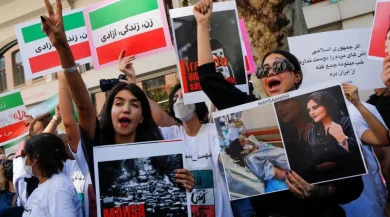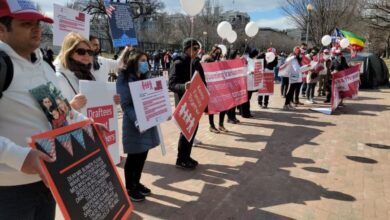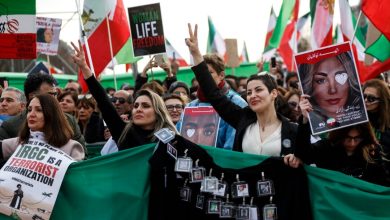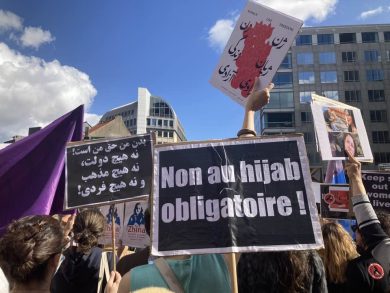The Islamic Revolutionary Guard Corps (IRGC), Iran’s elite paramilitary force, is often viewed through the lens of Middle Eastern conflicts: its suppression of dissent inside Iran, its proxy armies in Lebanon, Syria, and Yemen, and its role in destabilizing the region. But in recent years, the IRGC has expanded its reach far beyond the borders of Iran and the Middle East. It now operates actively on Western soil—stalking, harassing, threatening, and even plotting to kill journalists, dissidents, politicians, and Jewish community leaders in Europe and North America.
This analysis unpacks the IRGC’s operations abroad, examining how it uses espionage, cyberwarfare, disinformation, and assassination plots as tools of extraterritorial repression. From Tehran to Toronto, Berlin to Brooklyn, no dissident is truly safe from the regime’s transnational web of terror.
1. The IRGC’s Extraterritorial Mandate
The IRGC’s Quds Force is responsible for foreign operations, but its reach abroad has grown significantly since the 2010s—particularly after the Arab Spring and intensifying domestic unrest. In conjunction with the IRGC Intelligence Organization (separate from the Ministry of Intelligence), it has assumed a central role in surveilling and neutralizing perceived threats to the regime—even those who live in democratic nations.
Strategic Goals:
• Eliminate or silence exiled dissidents and journalists
• Deter diaspora-led political opposition
• Disrupt anti-regime organizing in Europe and the U.S.
• Send a message to Iranians: you are never out of reach
The IRGC doesn’t just export ideology or proxy warfare—it exports repression.
2. Assassination and Kidnapping Plots in the West
A. Masih Alinejad (U.S.)
• Iranian-American journalist and women’s rights activist
• Targeted by multiple IRGC plots (2021–2023)
• U.S. Department of Justice thwarted a kidnapping plot to smuggle her to Venezuela and then to Iran
• In 2022, IRGC agents plotted to assassinate her outside her Brooklyn home with a hired killer
B. Ruhollah Zam (France)
• Exiled journalist and founder of Amad News, which exposed regime corruption
• Lured from France to Iraq in 2019 with a fake meeting offer
• Kidnapped, brought to Iran, executed in 2020 after a show trial
C. Ali Reza Akbari (UK-Iran dual citizen)
• Former Iranian official accused of espionage for MI6
• Arrested during a visit to Iran in 2019; executed in 2023
• Believed to be targeted due to his ties in the UK and strategic information he held
D. Jewish and Israeli Targets (Europe)
• 2022: German and French intelligence disrupted IRGC-linked plots to attack synagogues and Jewish community leaders
• Operatives used local criminal networks and front charities to scout and infiltrate targets
These cases reflect a consistent pattern: IRGC targeting extends far beyond Iran, using sophisticated means to neutralize critics and sow fear.
3. Surveillance and Harassment of Diaspora Communities
The IRGC operates an extensive surveillance and intimidation campaign against Iranian diaspora communities.
Tactics Include:
• Monitoring protests, rallies, and student groups in Europe and North America
• Infiltrating mosques, cultural centers, and Persian-language institutions
• Filming and photographing participants for intelligence collection
• Sending threatening messages to families inside Iran
In the U.K., Germany, Sweden, and Canada, Iranian students and exiled activists report being followed, harassed, and blackmailed with threats against loved ones back home.
4. Front Organizations and Sleeper Networks
To maintain deniability, the IRGC uses front organizations, dual-use charities, and sleeper operatives to carry out activities abroad.
Common Cover Entities:
• Islamic cultural centers and mosques
• Charitable foundations for “orphans” or “martyrs”
• Fake academic institutions and exchange programs
• Student and academic travel delegations
Some of these fronts operate legally in countries like Germany, the UK, and Canada—despite ties to sanctioned individuals and terror-designated organizations like Hezbollah.
5. Cyber Operations in Western Countries
The IRGC’s cyber units—especially APT34 (OilRig) and APT42—target Western institutions and individuals for hacking, phishing, and espionage.
Targets Include:
• Journalists and human rights defenders
• Political activists and diaspora leaders
• Tech companies and think tanks
• Academic researchers working on Iran policy
Cyber Tactics:
• Phishing emails posing as NGOs, journalists, or academic conferences
• Hacking cloud accounts and extracting private communications
• Disinformation campaigns smearing dissidents online
• Deploying spyware apps via social media platforms
These operations are coordinated with physical surveillance to build complete threat profiles.
6. Hezbollah: The IRGC’s European Proxy
The IRGC often outsources operations in Europe to Hezbollah’s foreign cells.
Known Hezbollah Activities:
• Explosives stockpiling in London (2015) and Cyprus
• Surveillance of Jewish and Israeli sites in Germany and Bulgaria
• Use of forged passports to evade detection
While many countries have designated Hezbollah’s military wing as a terrorist group, several still distinguish it from the political wing—a loophole the IRGC exploits.
7. Iranian Diplomats as Intelligence Agents
Iranian embassies and consulates often act as IRGC and intelligence hubs in the West.
High-Profile Example:
• Assadollah Assadi, an Iranian diplomat in Vienna, was arrested in 2018 for plotting to bomb an anti-regime rally in Paris
• He smuggled explosives via diplomatic pouch and was sentenced to 20 years in prison
Assadi’s case showed that Iranian diplomats are often directly involved in state-sponsored terrorism—a pattern that has recurred in Belgium, Austria, France, and Turkey.
8. European and North American Legal Responses
United States:
• IRGC fully designated as a Foreign Terrorist Organization (FTO) in 2019
• DOJ regularly indicts IRGC operatives for cybercrime, plots, and sanctions violations
Canada:
• IRGC still not fully designated; only Quds Force listed
• Parliament passed a motion to list IRGC in 2018, but it remains unimplemented
United Kingdom:
• Sanctions several IRGC individuals and entities
• Government considering full terror designation
European Union:
• Individual sanctions on IRGC commanders and units
• Strong resistance from some members to full terrorist designation due to diplomatic and economic ties
The lack of coordinated designation across Europe allows the IRGC to exploit legal and logistical gaps.
9. Consequences for Exiled Dissidents
The IRGC’s reach has psychological and practical consequences for Iranian exiles:
• Fear of travel to certain countries
• Disconnection from families in Iran due to surveillance risks
• Self-censorship to avoid retaliation
• Anxiety over cyber harassment, hacking, and deepfakes
Some activists have gone into hiding or received police protection, particularly in the U.S., Canada, France, and Germany.
10. Recommendations for Governments and Civil Society
1. Full Terrorist Designation
• The IRGC, like Hezbollah, must be listed in its entirety
• Countries must close loopholes between “military” and “political” arms
2. Sanction All Front Organizations
• Cultural and religious centers with IRGC ties should be investigated
• Freeze assets and ban visas for affiliated individuals
3. Protect Dissidents
• Provide asylum and fast-track residency for at-risk individuals
• Assign security to those named in IRGC plots
• Monitor embassies and religious institutions for illicit activity
4. Enhance Cyber Defense
• Improve digital literacy in Iranian diaspora communities
• Partner with tech firms to track and neutralize IRGC phishing campaigns
5. Publicly Expose IRGC Tactics
• Create databases of known operatives, front groups, and past plots
Conclusion: Repression Without Borders
The Islamic Republic’s war on dissent does not end at its borders. The IRGC has made it clear that no critic is safe—not in Paris, not in New York, not in Berlin. Through intimidation, assassination plots, cyberattacks, and surveillance, it has weaponized the tools of a modern security state against diaspora communities who fled Iran to escape precisely this kind of repression.
Join Our Newsletter!
Stay informed with the latest updates, news, and ways to take action in the fight for justice and global security. Sign up now to get updates delivered straight to your inbox!





